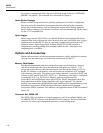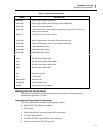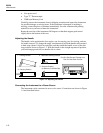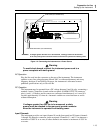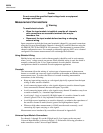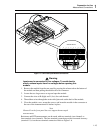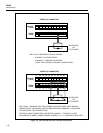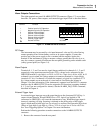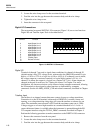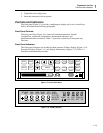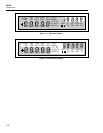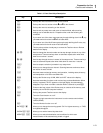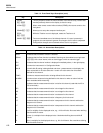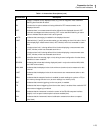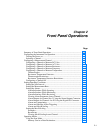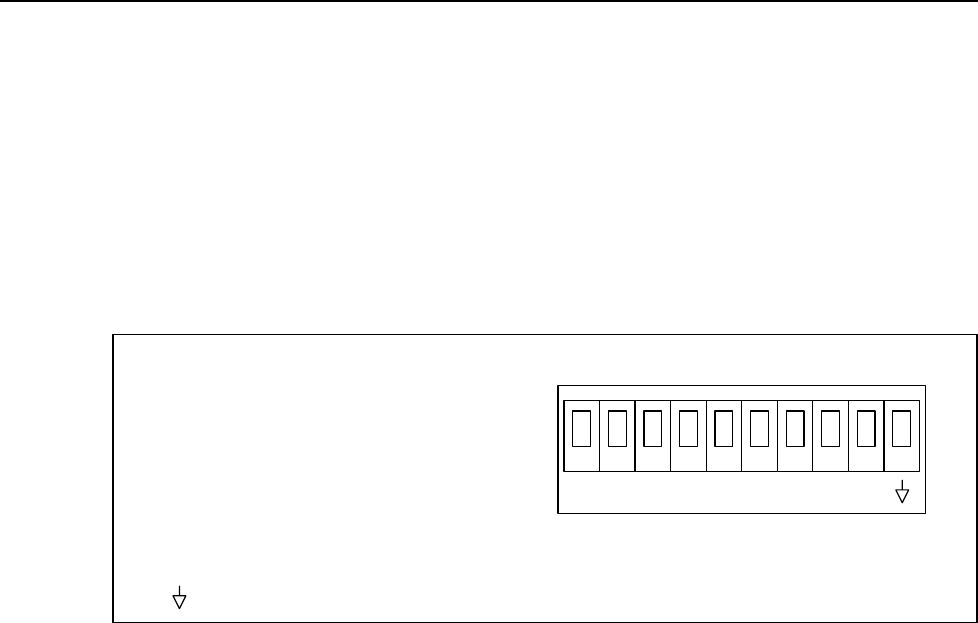
2635A
Users Manual
1-18
2. Loosen the wire clamp screw for the associated terminal.
3. Feed the wire into the gap between the connector body and the wire clamp.
4. Tighten the wire clamp screw.
5. Insert the connector in the rear panel.
Digital I/O Connections
The ten-terminal rear panel DIGITAL I/O connector (Figure 1-8) serves two functions:
Digital I/O and Totalizer input. Each is described below.
DIGITAL I/O
234567
Terminal
0
1
2
3
4
5
6
7
Function
Input/Output Line 0
Input/Output Line 1
Input/Output Line 2
Input/Output Line 3
Input/Output Line 4
Input/Output Line 5
Input/Output Line 6
Input/Output Line 7
Totalizer Input
Ground Terminal
10
Σ
Σ
op08f.eps
Figure 1-8. DIGITAL I/O Connector
Digital I/O
Terminals 4 through 7 are used to signal alarm conditions for channels 4 through 20
(default setting) using TTL voltage levels, referenced to the GROUND terminal. Logic
high is >+2.0 to <+5.5V dc; a logic low is 0.0 to +0.8V dc. If a channel is not in alarm,
the voltage output at a connector terminal is a logical high (nominal +5V dc); if a
channel is in alarm, the output is a logical low (nominal +0.7V dc). Alarm outputs are
changed at the end of each scan. See "Setting the Alarms" in Chapter 2 for more
information. All alarm associations can be removed using computer commands, allowing
the I/O terminals to be assigned to other functions as determined by computer
commands. See the ALARM_ASSOC_CLR and related commands, described in Chapter
4.
Totalizer Input
The totalizer is an internal counter that sums contact closures or voltage transitions.
Connection is to the SUM terminal, referenced to GROUND. A contact closure and
opening, or a voltage transition rising edge will cause the totalizer to advance by one
count. The maximum count allowed is 65535 and the maximum count rate is 5 kHz.
Voltages trigger on a low-to-high transition at a nominal threshold of +1.4 volts. A
contact debounce feature is available when the instrument is operated through the RS-
232 computer interface using the TOTAL_DBNC command, described in Chapter 4.
Perform the following procedure to make connections to the DIGITAL I/O connector:
1. Remove the connector from the rear panel.
2. Loosen the wire clamp screw for the associated terminal.
3. Feed the wire into the gap between the connector body and the wire clamp.



